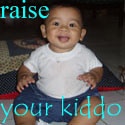Coaching is a one-on-one development process formally contracted between a coach and a management-level lient to help achieve goals related to professional development and/or business performance. Coaching typically focuses on helping the client to become more self-aware through the use of action learning methods.
Some fine points about that definition should be given attention.
• “One-on-one” doesn’t mean others aren’t involved. The boss and HR manager are almost certainly involved. The client’s peers and subordinates also may be. But this isn’t team development, or mediation, or any other form of consulting that has a multipleperson client. Here it is clear that one person is the
primary client.
• “Formally contracted” means this is very intentional and planned. There’s nothing casual about a coaching relationship. It is a business deal and usually entails a letter or memo clarifying the terms of the deal.
• “Management-level” can mean anything from recently hired professionals up to the CEO. The client doesn’t have to have a “manager” or “director” title, but should be a present or future participant in the leadership and managerial processes of the organization. This book isn’t intended for situations focused primarily on craft, hourly wage, or administrative support employees.
• Some “goals” are related to short-term business results, while other legitimate coaching goals are focused on bringing out the future potential of the client. It’s usually a mix of these issues. Goals that are too highly personal, however, are more properly addressed by a different kind of professional helper. Goals that are entirely business and not at all personal, such as changing a product’s brand image, are outside the range on the other end.
• “Action learning.” Coaching presses the client to do the learning. This happens by helping clients find and use good data about themselves and others and to develop a wider range of self-management and leadership skills. The coach doesn’t show up with correct answers. The client does the hard work and is left with skills that should serve a lifetime.
One way to categorize coaching situations is along these lines:
• Skill development—typically an interpersonal or selfmanagement skill
• Performance—problematic behaviors, new challenges
• Development—competencies needed for the future
The coaching we’re talking about applies in all three of these
kinds of situations. Sometimes the purposes overlap, and sometimes
the goals extend in additional directions, but these are typical
settings.
What is Coaching ?
Posted by Yudha Argapratama on March 19th, 2008
 RSS Feed
RSS Feed Twitter
Twitter


![SEVEN MANAGEMENT HAT [2]](https://peoplewit.com/wp-content/plugins/wordpress-23-related-posts-plugin/static/thumbs/10.jpg)


 Posted in
Posted in  Tags:
Tags: 





[…] read more […]